Revolutionizing Customer Support Metrics with AI and Automation
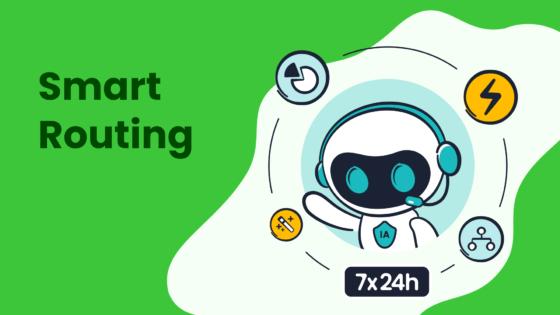
Customer support performance metrics have evolved rapidly in today’s digital-first world. Traditional measures like customer satisfaction scores often fail to capture the complexity of modern interactions. AI and automation now redefine these metrics, offering precision and real-time insights. For instance, AI-powered tools automate up to 22% of service desk tickets and reduce response times by 30%. Companies like Sobot leverage these technologies to enhance your customer experience, streamline operations, and improve satisfaction. With automation ensuring faster resolutions, you can focus on building stronger customer relationships.
The Current Landscape of Customer Support Performance Metrics
Traditional Metrics: CSAT, NPS, and FCR
You’ve likely encountered traditional metrics like Customer Satisfaction (CSAT), Net Promoter Score (NPS), and First Contact Resolution (FCR). These metrics have long been the backbone of customer support performance measurement. They help businesses gauge how well they meet customer expectations and resolve issues efficiently.
| Metric | Impact | Source |
|---|---|---|
| NPS | Companies with high NPS achieve roughly 2× the revenue growth of peers | Bain & Company |
| CSAT | Improving CSAT can help retain 74% of customers for an additional year | Harvard Business Review |
| FCR | Each 1% improvement in FCR can reduce operating costs by 1% | Industry Research |
| Brand Loyalty | High NPS correlates with higher brand equity and customer lifetime value | Bain & Company |
These metrics provide valuable insights into customer satisfaction and loyalty. For example, improving CSAT can help you retain customers longer, while a higher NPS often correlates with stronger brand loyalty. FCR, on the other hand, directly impacts operational efficiency, reducing costs with every percentage improvement.
Limitations of Traditional Metrics in Modern Customer Support
Despite their effectiveness, traditional metrics struggle to keep up with evolving customer service trends. Today’s customers expect faster resolutions, personalized experiences, and seamless interactions across multiple channels.
- 93% of customer service teams report that customer expectations are higher than ever before.
- 80% of individuals frequently experience negative customer service interactions.
- 71% of customer support leaders have noted an increase in contact volume since 2020.
These trends highlight the growing complexity of customer support. Traditional metrics often fail to capture the nuances of omnichannel interactions or the emotional impact of customer experiences. For instance, CSAT may not reflect the frustration caused by long wait times, and NPS might overlook the importance of proactive support.
To address these challenges, you need metrics that go beyond surface-level insights. AI and automation enable businesses to measure real-time sentiment, predict customer needs, and evaluate engagement across channels. These advanced tools redefine how you assess and improve customer support performance.
How AI is Transforming Customer Support Performance Metrics
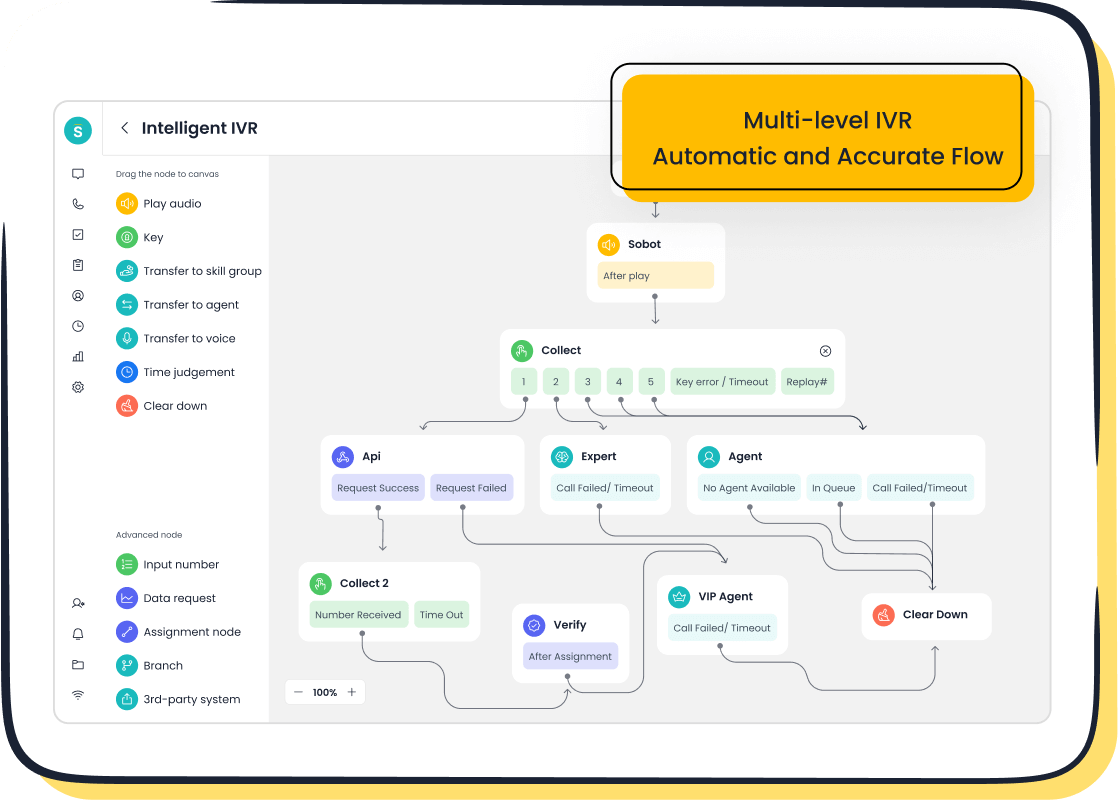
Real-Time Sentiment Analysis for Enhanced Insights
AI-powered customer support tools now enable you to analyze customer sentiment in real time, offering unparalleled insights into their emotions and experiences. By leveraging conversational AI, you can detect subtle cues in language, tone, and even pauses during interactions. This allows you to address dissatisfaction before it escalates, enhancing customer experiences and improving customer satisfaction metrics.
For example, 83% of software companies that implemented sentiment analysis tools reported significant improvements in customer satisfaction within the first year. Additionally, businesses using multi-channel sentiment analysis identified 2.8 times more actionable opportunities for improvement compared to those relying on single-channel methods. These insights empower your team to make data-driven decisions that enhance the customer journey.

Sobot’s AI-driven customer support solutions, such as its Voice/Call Center, integrate real-time sentiment analysis to help you monitor and improve interactions. With features like AI-powered Voicebots and intelligent call routing, you can ensure that every customer receives personalized customer service tailored to their needs.
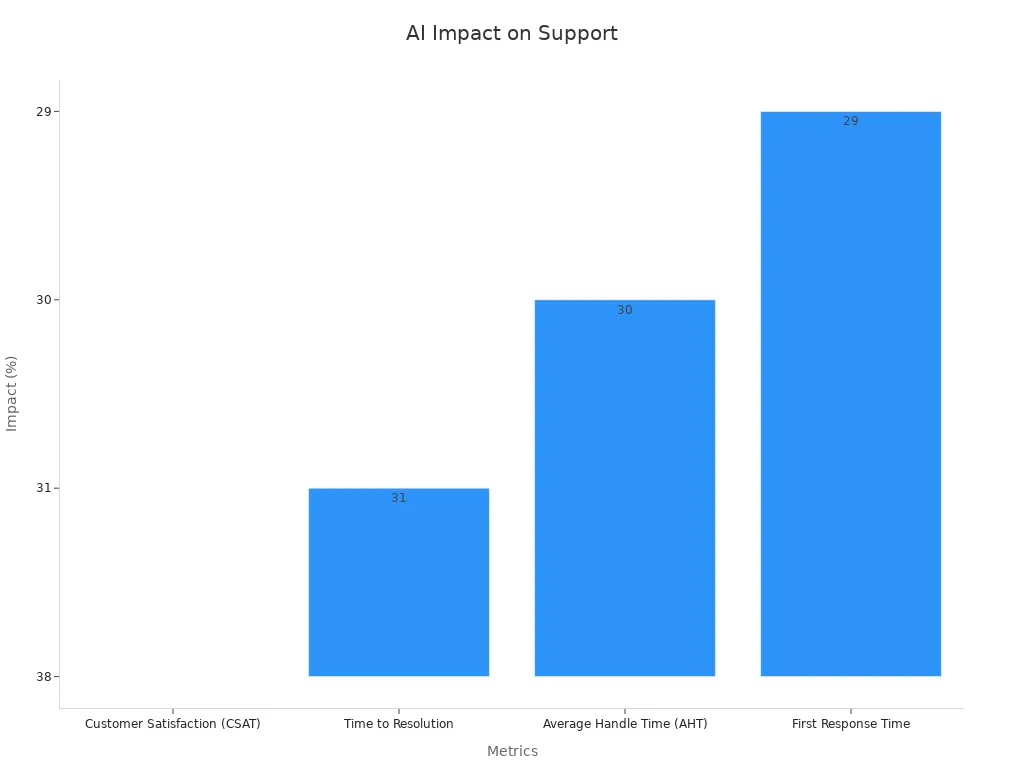
Predictive Analytics to Anticipate Customer Needs
Predictive analytics transforms customer support by enabling you to anticipate customer needs before they even articulate them. By analyzing historical data and behavioral patterns, AI tools can forecast issues, recommend solutions, and even identify opportunities for upselling or cross-selling.
Consider the case of Capital One, which achieved a 45% success rate in cross-selling through personalized offers powered by predictive analytics. Similarly, churn prediction models have reduced attrition rates by 27%, helping businesses retain more customers. These tools not only improve customer satisfaction but also drive additional revenue, as seen in analytics-driven initiatives that generated $300 million annually.
Sobot’s Omnichannel Solution incorporates predictive analytics to optimize your customer journey. By unifying data across channels, it provides actionable insights that allow you to deliver proactive support and personalized experiences. This ensures that your customers feel valued and understood at every touchpoint.
| Application | Success Rate | Description |
|---|---|---|
| Capital One: Cross-selling | 45% | Increased success rates in cross-selling through personalized offers. |
| Customer Satisfaction Scores | 23% | Boosted customer satisfaction through real-time data analysis. |
| Churn Prediction Models | 27% | Reduced attrition rates by identifying at-risk customers and implementing retention strategies. |
| Additional Revenue | $300 million | Attributed additional annual revenue to analytics-driven initiatives. |
Intent Categorization and Its Role in Personalization
Understanding customer intent is crucial for delivering personalized service. AI in customer service excels at categorizing customer inquiries based on intent, enabling you to route them to the right agent or automated solution. This not only improves efficiency but also ensures that customers receive the most relevant support.
AI-assisted customer support agents handle 13.8% more inquiries per hour, thanks to intent categorization. This capability also enhances work quality, as agents can focus on complex issues while automation handles repetitive tasks. For instance, Sobot’s Chatbot uses intent recognition to provide instant, accurate responses, ensuring a seamless customer experience.
By integrating intent categorization into your customer support strategy, you can deliver personalized customer service that meets individual needs. This approach not only boosts efficiency but also strengthens customer loyalty, as customers appreciate the effort to understand and address their unique concerns.
The Role of Automation in Improving Customer Experience

Streamlining Data Collection and Reporting
Automation has revolutionized how you collect and report data in customer support. By leveraging automated tools, you can gather and organize information more efficiently, saving time and resources. These tools centralize data from multiple channels, ensuring you have a complete view of your customer interactions.
- Automated systems enhance accuracy by eliminating manual errors during data collection.
- Real-time monitoring allows you to track customer interactions as they happen, enabling faster decision-making.
- Scalable solutions ensure that your operations grow seamlessly, even as customer inquiries increase.
For example, Sobot's Omnichannel Solution consolidates data from various platforms like email, chat, and social media into a unified workspace. This integration simplifies reporting and provides actionable insights, helping you optimize your customer journey. With automation, you can focus on enhancing customer experiences rather than managing fragmented data.
Reducing Human Error in Metric Analysis
Human error often disrupts the accuracy of customer support metrics. Automation minimizes these mistakes by performing repetitive tasks consistently and without fatigue. Automated systems accurately route tickets, deflect repetitive queries, and analyze data without typos or miscalculations.
- Automation reduces the need for rework, saving both time and money.
- It allows your team to focus on complex issues, improving overall efficiency.
- Consistent performance ensures reliable metric analysis, leading to better decision-making.
Sobot's AI-powered automation tools, such as its Chatbot and Voice/Call Center, excel in reducing errors. These tools handle routine tasks like ticket categorization and intent recognition, ensuring accurate data for your reports. By adopting automation, you can improve the quality of your customer support while maintaining high standards of accuracy.
Enhancing Response Times with Sobot's Voice/Call Center
Fast response times are critical for delivering exceptional customer support. Automated voice and call center solutions, like Sobot's Voice/Call Center, significantly enhance response times by streamlining workflows and leveraging AI-powered tools.
| Metric | Description |
|---|---|
| Average Handle Time (AHT) | Predictive dialing and routing technologies reduce AHT, improving productivity. |
| Technology Adoption | AI and machine learning enable real-time performance tracking and automated responses. |
| Omnichannel Capabilities | Over 75% of call centers now offer omnichannel support, ensuring seamless customer experiences. |
| Remote Work Support | Around 51% of call centers maintain service quality while supporting remote work. |
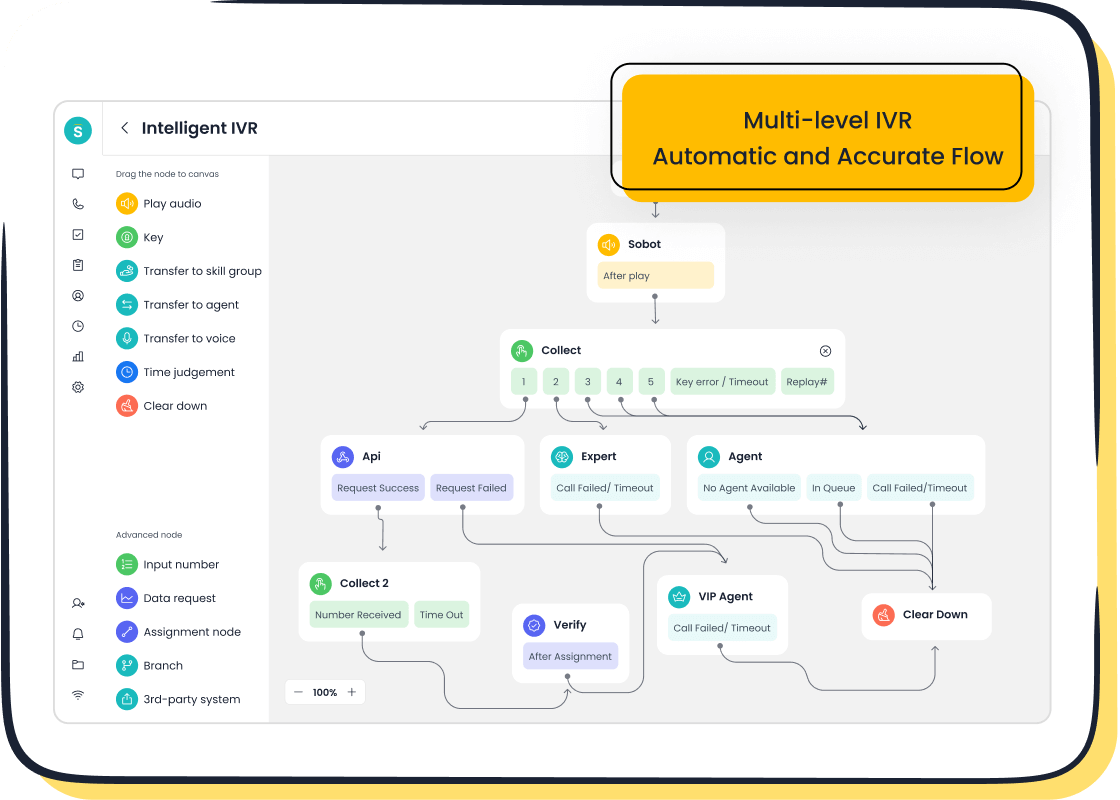
Sobot's Voice/Call Center combines intelligent IVR, AI-powered Voicebots, and smart call routing to ensure your customers receive prompt and personalized service. These features not only reduce wait times but also improve first-contact resolution rates. By integrating Sobot's solutions into your omnichannel strategy, you can deliver an ai-driven customer experience that meets modern expectations.
Emerging Metrics Enabled by AI and Automation
AI-Driven Personalization Scores for Tailored Experiences
AI has revolutionized how you deliver personalized experiences by introducing metrics like personalization scores. These scores measure how effectively your customer interactions align with individual preferences, enabling you to refine your approach. For example, AI can analyze browsing history, purchase patterns, and interaction data to recommend products or services tailored to each customer.
This level of precision drives measurable results. AI-powered personalization increases e-commerce revenue by up to 25% and boosts customer retention by 40%. Amazon attributes 35% of its total sales to AI-driven recommendations, showcasing the power of personalization. Sobot’s Omnichannel Solution leverages AI to unify customer data across channels, helping you create seamless, personalized experiences that improve satisfaction and loyalty.
By adopting AI-driven personalization scores, you can enhance your customer service strategy and stay ahead of emerging customer service trends.
Proactive Support Success Rates in Omnichannel Solutions
Proactive support has become a cornerstone of modern customer service trends. Metrics like Proactive Support Success Rates measure how effectively you anticipate and resolve issues before customers report them. AI and automation make this possible by analyzing historical data and identifying patterns that signal potential problems.
For instance, predictive analytics can alert you to a recurring issue with a product, allowing you to notify affected customers and offer solutions proactively. This approach not only reduces inbound inquiries but also strengthens trust and loyalty. Sobot’s Omnichannel Solution excels in this area, enabling you to deliver proactive support across multiple channels. By integrating AI-driven insights, you can improve your omnichannel support and ensure a consistent customer experience.
Measuring Omnichannel Engagement Effectiveness with Sobot
Tracking engagement across multiple channels is essential for optimizing your omnichannel strategy. Metrics like Customer Lifetime Value (CLV) and Net Promoter Score (NPS) provide insights into how well your omnichannel support meets customer expectations. For example, CLV helps you understand the long-term value of your customers, while NPS measures their likelihood to recommend your brand.
Sobot’s Omnichannel Solution simplifies this process by consolidating data from various platforms into a unified workspace. This integration allows you to monitor key metrics like response time and ticket volume handled per time unit. With these insights, you can refine your self-service solutions, improve efficiency, and enhance customer satisfaction.
By leveraging Sobot’s tools, you can measure and optimize engagement across all channels, ensuring your omnichannel strategy delivers maximum value.
Challenges and Ethical Considerations in AI-Driven Metrics
Addressing Data Privacy Concerns in Customer Support
Data privacy remains a significant concern as AI becomes more integrated into customer support. Many customers worry about how their personal information is collected, stored, and used. Transparency in data handling is essential to build trust and ensure compliance with privacy regulations.
| Statistic | Percentage |
|---|---|
| Consumers concerned about privacy online | 68% |
| Consumers who agree AI poses a significant threat to privacy | 57% |
| Consumers uncomfortable with how AI companies use collected information | 81% |
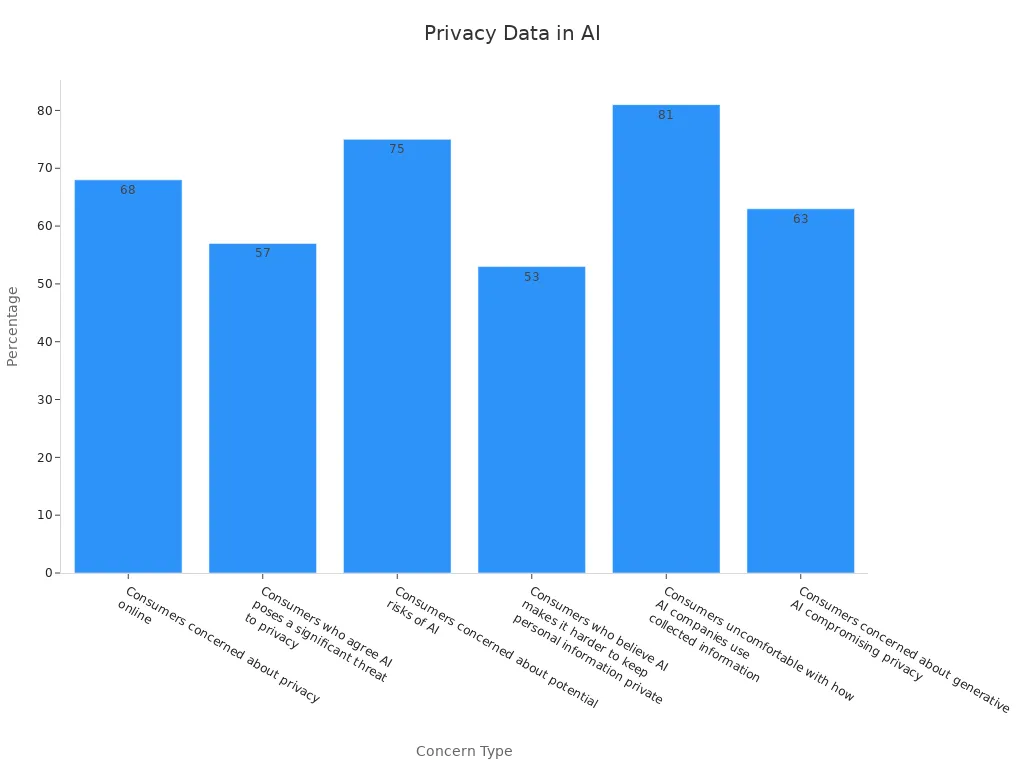
You can address these concerns by implementing robust data encryption, limiting data collection to what is necessary, and providing clear explanations of how AI systems use customer information. These steps not only protect privacy but also enhance customer confidence in your services.
Ensuring Transparency and Fairness in AI Algorithms
AI algorithms must operate transparently and fairly to avoid perpetuating biases. If training data contains biases, AI systems may unintentionally discriminate against certain groups. This can lead to unfair outcomes and damage your brand's reputation.
- AI systems should promote fairness and justice by ensuring equitable access to services.
- Transparency in AI interactions helps customers understand how decisions are made.
- Regular audits of AI systems can identify and mitigate biases in training data.
By prioritizing fairness and transparency, you can ensure that your AI tools benefit all customers equally and align with ethical standards.
Balancing Automation with Human-Centric Support
While automation improves efficiency, it should not replace the human touch in customer support. Studies show that users prefer systems that combine automation with human involvement. For example, automated tools can handle repetitive tasks, but customers often value the ability to interact with a human for complex issues.
- Intermediate levels of automation keep users involved in decision-making.
- Reliable and transparent systems enhance trust in automation.
- Automation should complement, not replace, human interaction.
Sobot’s solutions strike this balance by integrating AI-driven tools with human-centric features. For instance, its Voice/Call Center uses AI to streamline workflows while allowing agents to focus on personalized customer interactions. This approach ensures that automation enhances, rather than diminishes, the customer experience.
AI and automation have revolutionized how you measure and improve customer support performance. These technologies enable real-time insights, predictive analytics, and personalized interactions, transforming traditional metrics into dynamic tools for growth. For example, predictive analytics now identifies churn risks and upsell opportunities, while machine learning enhances key performance indicators across industries.
Adopting AI-driven solutions ensures you stay competitive in a world where 66% of consumers expect businesses to understand their unique needs. Industries like retail and healthcare already leverage AI for personalized shopping and telehealth services, setting a benchmark for innovation.
Sobot continues to lead this transformation by integrating advanced tools into its omnichannel and self-service solutions. As customer expectations evolve, Sobot’s commitment to innovation ensures you deliver exceptional experiences while staying ahead of emerging trends.
FAQ
What is the role of AI in customer support metrics?
AI enhances customer support metrics by providing real-time insights, predictive analytics, and sentiment analysis. It helps you understand customer behavior, anticipate needs, and improve satisfaction. AI tools also streamline processes, enabling you to focus on delivering exceptional service.
How does automation improve response times?
Automation reduces response times by handling repetitive tasks and routing inquiries efficiently. Tools like Sobot’s Voice/Call Center use AI-powered features to ensure quick resolutions. This allows your team to focus on complex issues while maintaining high service standards.
Can AI-driven metrics help with personalization?
Yes, AI-driven metrics analyze customer data to create tailored experiences. By understanding preferences and behaviors, AI tools recommend relevant solutions or products. This personalization improves satisfaction and builds stronger relationships with your customers.
What are the benefits of omnichannel solutions in customer support?
Omnichannel solutions unify communication channels, providing a seamless experience for your customers. They consolidate data into a single workspace, enabling efficient management of inquiries. This approach enhances satisfaction and ensures consistent service across all platforms.
How does Sobot ensure data privacy in AI-driven solutions?
Sobot prioritizes data privacy by using encryption and limiting data collection to essential information. The platform complies with privacy regulations and provides transparency in how data is used. These measures build trust and protect your customers’ information.
See Also
Transforming Customer Support With AI Service Agents
Enhancing Efficiency Through AI Customer Service Solutions
An In-Depth Look At AI Call Center Solutions
